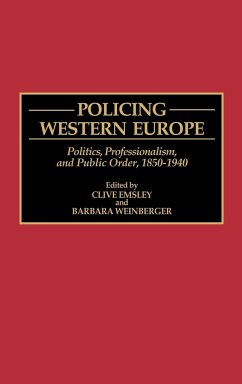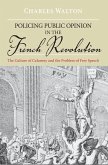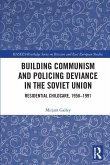This collection of essays examines the growth of professionalization in national police forces in England, France, Germany, Ireland, and the Netherlands. The period covered begins at the point where police forces had been established on some sort of a national scale. The essays are concerned with perceptions of both rulers and ruled, and perceptions of the role and function of the police in established industrial and urbanized societies. They also deal with the ways in which different police forces expanded and developed over time, and with the effect of this expansion and development on police organization and strategy. During the period covered in the book, all the countries of Western Europe were confronted with similar, essentially political challenges. Industrialization and urbanization created new and alarming environments and appeared to foster new and menacing social groups, from the dangerous classes lurking within the unskilled urban working class, to the more tangible organizations created by labor. Socialism and fascism provided the European states with new ideologies and ideologues to confront or to support--and world war, involving mass mobilization on the home as well as the battle fronts, was seen to require a further extension of the role of the state. In a crisis, central government must ensure its command over its forces of coercion and its sources of information--it was then that the police became most openly the executive area of government. As the trend toward central control intensified, so did the trend toward professionalization. By examining the evolution of the police in five societies, the authors provide valuable analyses of the ways police forces differed from one another, the ways in which they approached their tasks, and how they developed their respective self-images. This collection will be of considerable use to scholars and students involved in research on modern European history and criminology.
Hinweis: Dieser Artikel kann nur an eine deutsche Lieferadresse ausgeliefert werden.
Hinweis: Dieser Artikel kann nur an eine deutsche Lieferadresse ausgeliefert werden.








